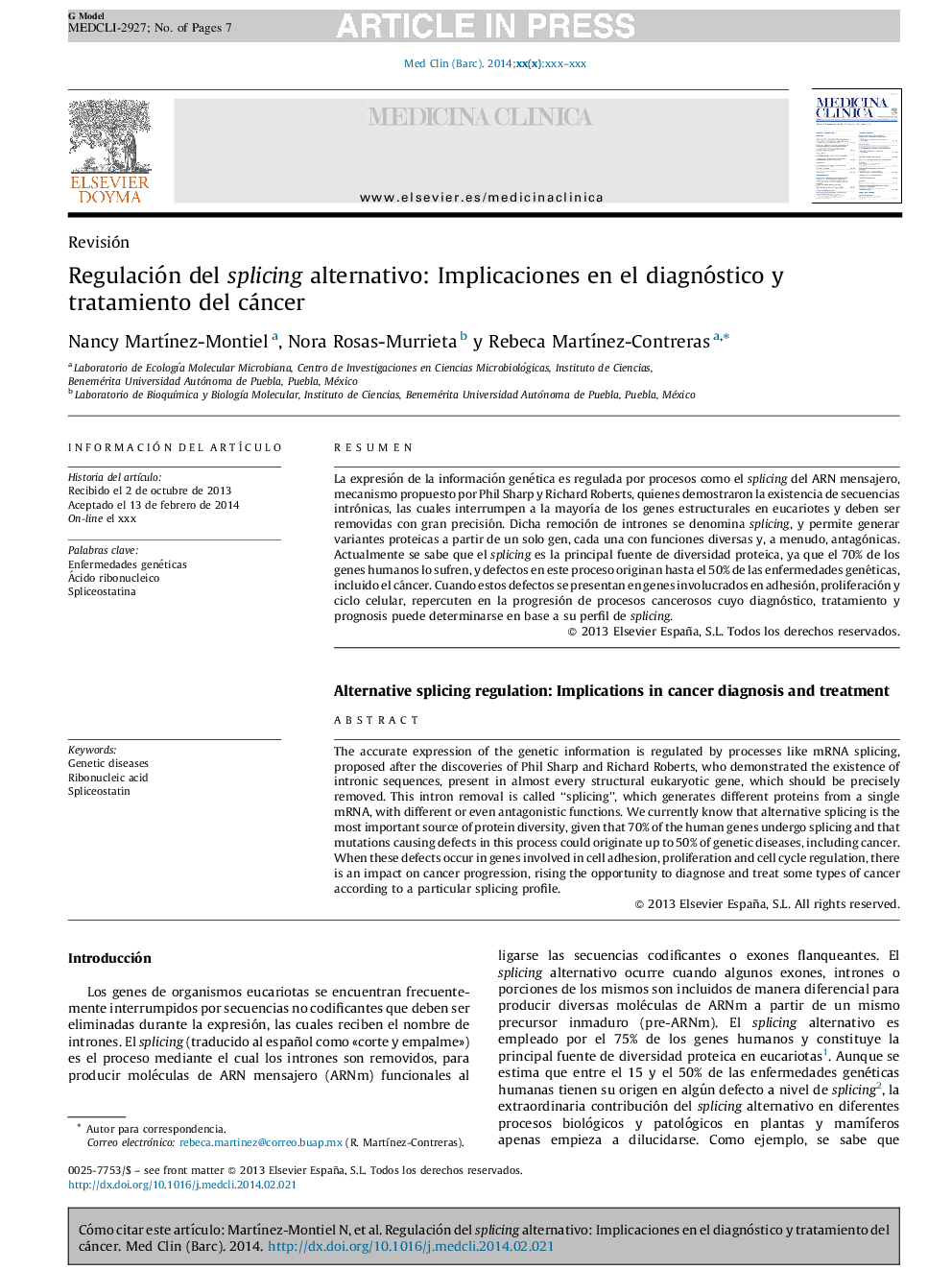| Article ID | Journal | Published Year | Pages | File Type |
|---|---|---|---|---|
| 6151991 | Medicina Clínica | 2015 | 7 Pages |
Abstract
The accurate expression of the genetic information is regulated by processes like mRNA splicing, proposed after the discoveries of Phil Sharp and Richard Roberts, who demonstrated the existence of intronic sequences, present in almost every structural eukaryotic gene, which should be precisely removed. This intron removal is called “splicing”, which generates different proteins from a single mRNA, with different or even antagonistic functions. We currently know that alternative splicing is the most important source of protein diversity, given that 70% of the human genes undergo splicing and that mutations causing defects in this process could originate up to 50% of genetic diseases, including cancer. When these defects occur in genes involved in cell adhesion, proliferation and cell cycle regulation, there is an impact on cancer progression, rising the opportunity to diagnose and treat some types of cancer according to a particular splicing profile.
Related Topics
Health Sciences
Medicine and Dentistry
Medicine and Dentistry (General)
Authors
Nancy MartÃnez-Montiel, Nora Rosas-Murrieta, Rebeca MartÃnez-Contreras,
